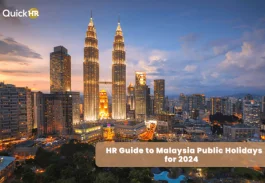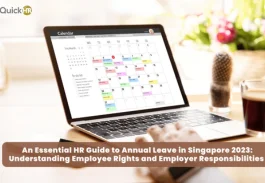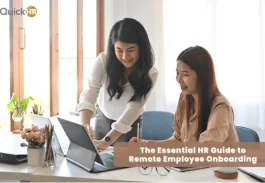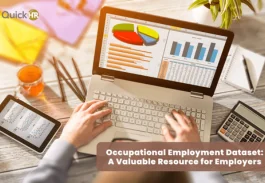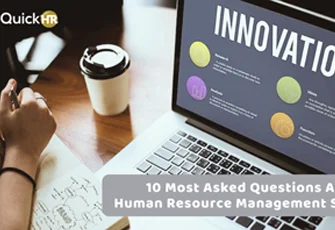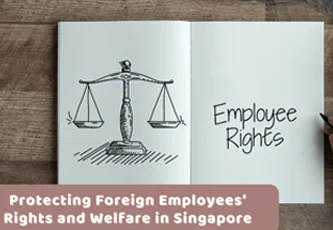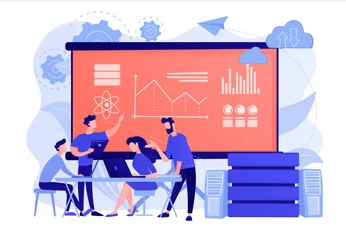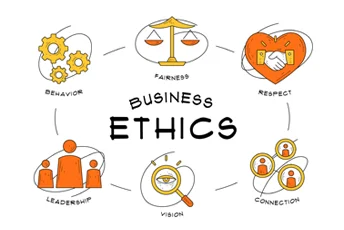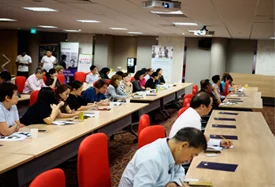
Three Key Challenges HR Professionals Face in a Changing World
Posted on 03 December 2020 in Business | Gabriel Chua
Take the Advantage
Business magnate and founder of Virgin Group, Sir Richard Branson, once said, "Business opportunities are like buses, there's always another
one coming."
Indeed, this quote aptly illustrates today’s business environment. In a fast-paced and often cut-throat world, opportunities, like buses, tend to come and go. The question for businesses today is how can they can leverage upon the prevailing circumstances to take advantage of these opportunities. In order to capitalise on every occasion fand minimise opportunity costs, organisations have to be on their toes and be proactive.
The role of HR
In this fast-changing business world, HR’s prime objective remains the same, to be the backbone of the organisation empowering their employees and business to grow. How should they continue in carrying out this objective considering the current business climate? Below are 3 key issues for HR Departments to look out for and resolve so as enable them to continue empowering their organisations to successfully grow.
The 3 Key Challenges

Challenge 1: Recruiting and Retaining Talent in the Gig Economy
The "Gig Economy" has been increasing in popularity in recent years. It is when workers choose to work contract and/or freelance work as opposed to traditional permanent jobs. A recent report by McKinsey [1] found that knowledge-intensive industries and creative occupations are the largest and fastest-growing segments of the freelance economy. With workers nowadays tending to "job-hop" frequently, an issue of retaining the best talent has arisen.
Solution : In order to retain gig employees, HR needs to develop a sense of loyalty in them towards the company. For instance, providing company benefits to them – such as covering a certain percentage of their medical fees incurred. By treating them as one of the company’s own, gig workers would feel a sense of loyalty towards the organisation. As such, they are more likely to return at any given chance.According to MetLife, [2] 43% of gig workers indicated that attractive benefits would lead them to seek a full-time position, while 29% said that they would be compelled to stay if attractive benefits were offered.
Benefit : Retaining talent will help companies to maintain or and develop their dynamic capabilities to ensure that they remain firm in the face of adversity. Additionally, by retaining talent, companies will not be required to source for or additional workers, thereby saving on recruitment costs.
Challenge 2: Resolving Generational Differences
According to the Manpower Group, [3] there are 4 different generations (Millennials 35%, Gen X 35%, Gen Z 24%, Boomer 6%) across the global workforce. This represents 4 different ways of thinking which could lead to clashes in ideology at the workplace.

Solution : To resolve generational differences, encouraging a culture of open communication is necessary. To do so, leaders and Human Resources personnel, should support one another and create an environment which allows their employees to freely express their feelings and points of view. All too often, employees keep to themselves whenever they feel aggrieved, building up feelings of anger and resentment. By encouraging open communication, workers will be empowered to get to know each other’s motivations and workings styles, thereby building a united workforce for greater efficiency.
Benefit: With open communication [4] enabling a harmonious workplace to be established, generational differences can be set aside and colleagues will be empowered with greater experiences and flexibility to overcome diverse challenges.
Challenge 3: Ensuring Job Security in the Age of Automation
The rapid development of technology has resulted in many jobs being made redundant by automation. It is estimated that as much as 14% of the global workforce [5] will be affected by this change, with 20 million manufacturing jobs [6] estimated to be lost to robots by 2030. This slow change towards this projection has left many employees worried about job security and anxious about the future of their career.
Solution: The good news is that not every job can be replaced by technology. Artificial Intelligence (AI) and robots lack the emotional capacity to deal with complex situations, as such, developing the capabilities of human workers is still necessary. By sending employees for various upskilling courses, strong returns on investment can be gained in the form bridging skill gaps [7] present in an organisation while cultivating employee loyalty.
Benefit: By addressing the issue of automation, businesses will have a greater wealth of options available to overcome obstacles to ensure that they continue to strive and succeed.
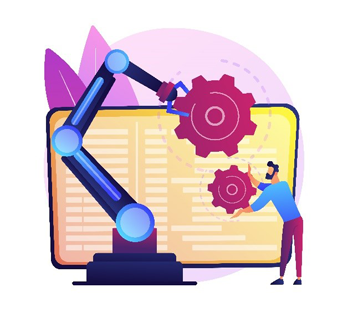
In Essence
The above challenges may sound daunting, however, in rising to the challenge, as a HR Professional you can empower your workforce not only to be equipped for today’s challenges, but for the challenges of the future.
And if you need that extra boost to strengthen your HR department, why not try out Quickhr ? With great modules like our award-winning Applicant Tracking and Payroll systems amongst many other multi-faceted modules, rest assured that even the most tedious of HR processes will be made easy.
Once again, we hope that you’ve enjoyed a good read. And remember, Think Now, Think Far, Think QuickHR.
* Get in touch with us at https://www.quickhr.co/ to find out more about our state-of-the-art HRMS solution!
Citations:
Leong.ET. (2019, August 12). Create positive work culture. The Straits Times.
https://www.straitstimes.com
Ping.CK. (2019, June 26). Robots to wipe out 20 million jobs around the world by 2030: Study. The Straits Times.
https://www.straitstimes.com
Imbert-bouchard.M (2018, November 7). Upskilling is now a must-do. The New Paper.
https://www.tnp.sg
[1] https://www.mckinsey.com/featured-insights/employment-and-growth/independent-work-choice-necessity-and-the-gig-economy
[2] https://www.businesswire.com/news/home/20190820005688/en/Flexibility-and-Purpose-—-Workforce-Turns-to-Gig-in-Pursuit-of-the-Ultimate-Work-Life-Blend
[3] https://www.manpowergroup.com.sg/wps/wcm/connect/754983e5-6060-451e-8237-ec0c5f6d1475/Millennial+Careers+2020+Vision+%28Singapore%29.pdf?MOD=AJPERES
[4] https://www.straitstimes.com/forum/letters-in-print/create-positive-work-culture
[5] https://www.mckinsey.com/featured-insights/future-of-work/retraining-and-reskilling-workers-in-the-age-of-automation#
[6] https://www.straitstimes.com/tech/robots-to-wipe-out-20-million-jobs-around-the-world-by-2030-study
[7] https://www.tnp.sg/news/views/upskilling-now-must-do
Enjoying this article? Subscribe now and never miss out on future content.











